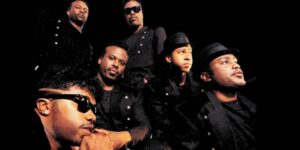The Evolution of Music: How the 1970s Shaped the Sounds of Today
The 1970s was a transformative time for music, marked by the rise of rock, pop, and funk as major forces in the industry. This era saw the emergence of iconic bands and artists who pushed the boundaries of their respective genres, experimenting with new sounds, styles, and technologies. The influence of 1970s music can still be felt today, with many contemporary artists drawing inspiration from the era’s innovative spirit and creative freedom. In this article, we’ll explore how 1970s music influenced contemporary music and examine the ways in which the past continues to shape the present.
A Funky Foundation
The 1970s was the golden age of funk, with legendary bands like Parliament-Funkadelic, Sly and the Family Stone, and Earth, Wind & Fire dominating the charts. These acts’ emphasis on rhythm, groove, and showmanship has had a lasting impact on contemporary R&B, hip-hop, and pop music. Artists like Prince, Madonna, and Bruno Mars have all borrowed from the funk playbook, incorporating elements of disco, soul, and rock into their sound.
The influence of funk can also be heard in the work of contemporary producers like Timbaland and The Neptunes, who have often used funk samples and breaks as the foundation for their beats. Even EDM (Electronic Dance Music) and electronic pop artists have been inspired by the era’s funk-infused sound, with many incorporating funk elements into their productions.
The Birth of Punk and New Wave
The 1970s was also a time of great upheaval and transformation in the music world. The emergence of punk rock and new wave, spearheaded by bands like The Sex Pistols, The Clash, and The Ramones, challenged the mainstream’s dominance and paved the way for a more diverse and experimental musical landscape. This DIY ethos, characterized by self-released records and gigs in dingy clubs and warehouses, has had a lasting impact on contemporary indie rock and alternative music.
Today, artists like Arctic Monkeys, The Strokes, and The Black Keys owe a debt to the pioneers of punk and new wave. The influence of these genres can be seen in the raw energy, simplicity, and rebellious spirit of contemporary alternative music. Even mainstream pop and rock acts have been influenced by punk and new wave’s emphasis on attitude and DIY aesthetics.
The Rise of Electronic Music
The 1970s was also a pivotal time for electronic music, with the introduction of synthesizers, drum machines, and other new technologies. Artists like Kraftwerk, Tangerine Dream, and Gary Numan were among the first to experiment with these new sounds, laying the groundwork for the electronic dance music (EDM) explosion of the 1990s and 2000s.
Today, electronic music has become a major force in the industry, with artists like Daft Punk, Justice, and Skrillex pushing the boundaries of production and live performance. The influence of 1970s electronic music can be heard in the work of contemporary EDM artists, as well as in the experimental productions of indie rock and pop musicians.
A Legacy That Continues to Inspire
The 1970s may be decades behind us, but the influence of the era’s music continues to shape contemporary sounds. From funk and rock to punk and electronic music, the experimentation, creativity, and rebellious spirit of the 1970s have all contributed to the rich tapestry of today’s music landscape.
As the music world continues to evolve, it’s clear that the lessons of the 1970s – innovation, experimentation, and a willingness to challenge the status quo – will continue to inspire and influence generations to come. Whether you’re a fan of classic rock, pop, or electronic music, there’s no denying the enduring impact of the 1970s on the music world.
Conclusion
The 1970s was a transformative time for music, marked by the rise of new genres, styles, and technologies. The influence of 1970s music can still be felt today, with many contemporary artists drawing inspiration from the era’s innovative spirit and creative freedom. Whether you’re a fan of funk, rock, punk, or electronic music, the lessons of the 1970s – experimentation, innovation, and a willingness to challenge the status quo – will continue to shape the sound of contemporary music for years to come.
FAQs
Q: What were some of the key genres that emerged in the 1970s?
A: The 1970s saw the rise of rock, funk, disco, punk, and electronic music.
Q: Who were some of the most influential artists of the 1970s?
A: Artists like Led Zeppelin, The Rolling Stones, David Bowie, Queen, and Elton John were major forces in rock music, while funk legends like Parliament-Funkadelic and Earth, Wind & Fire dominated the R&B scene. Punk and new wave was spearheaded by bands like The Sex Pistols, The Clash, and The Ramones.
Q: How has 1970s music influenced contemporary music?
A: The 1970s’ emphasis on experimentation, creativity, and rebellion has had a lasting impact on contemporary music. Funk’s rhythm and groove have influenced R&B, hip-hop, and pop, while punk and new wave’s DIY ethos has influenced indie rock and alternative music. Electronic music’s focus on technology and production has paved the way for EDM and experimental pop.
Q: What’s the future of music?
A: The future of music is uncertain, but it’s clear that the lessons of the 1970s – innovation, experimentation, and a willingness to challenge the status quo – will continue to shape the sound of contemporary music. With new technologies and platforms emerging all the time, the possibilities for creative expression and collaboration are endless.






